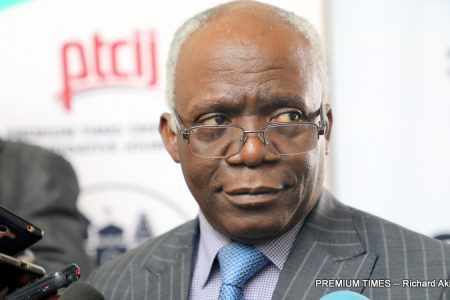
Human rights lawyer, Mr. Femi Falana, has called on the Supreme Court to reassess certain decisions related to political cases.
He emphasized that only through such a review could Nigerians truly embrace the new electoral jurisprudence championed by the apex court.
Falana also urged the National Assembly to examine the rulings of tribunals and appellate Courts regarding the 2023 general elections.
He encouraged lawmakers to consider amending the Electoral Act and relevant constitutional provisions to ensure that election outcomes are determined by voters rather than judges.
In a statement titled “Supreme Court And New Electoral Jurisprudence In Nigeria,” Falana criticized some political leaders who, instead of praising the Justices of the Apex Court for their recent judgments, expressed gratitude to Bola Tinubu for not interfering in the judicial process.
He viewed such statements as indicative of a lack of confidence in the autonomy of the courts within the political class.
Expressing concern, Falana noted that politicians applauding the Supreme Court for its landmark judgment in favor of Governor Caleb Muftang of Plateau State might exploit the decision to manipulate political party primaries in the 2027 elections and beyond.
He pointed out that, contrary to the Supreme Court’s ruling, the qualification of a candidate who did not participate in a valid primary could be contested by a rival political party in an election petition, citing Section 285(13) of the constitution.
He said, ” In view of the fact that the issues of the congresses, nomination and sponsorship of the governorship candidate of the APC were determined in Jegede’s case, the Supreme Court ought not to have turned round to insist that ‘the issue of primary is an internal matter of political parties, which both the Tribunal and Court of Appeal lacked jurisdiction to determine’.
“However, the judgement of the Court of Appeal was rightly set aside by the Supreme Court, which found that contrary to the claim of the petitioners and the judgment of the appellate court the order of the Plateau High Court was not disobeyed by the PDP as evidence showed that a fresh primary was conducted.
“No doubt, the decision of the Supreme Court on party primary was anchored on Section 285(14) of the Constitution, it is submitted that the question that a candidate who did not participate in a primary can be raised by his/her opponent in an election petition by virtue of section 285(13) thereof which provides that “An election tribunal or court shall not declare any person a winner at an election in which such a person has not fully participated in all stages of the election.”
“In Jegede’s case, the Supreme Court correctly came to the conclusion that the PDP and its governorship candidate did not prove that the APC governorship candidate did not participate in a valid primary.
READ ALSO: Femi Falana Leads Massive Protest Against Police Brutality in Lagos
“The point that I am struggling to make is that the qualification of a candidate who did not take part in a valid primary can be challenged by a rival political party in an election petition by virtue of section 285(13) of the constitution.
“In a number of cases, it has been decided by the Supreme Court that qualification is a pre-election and post-election matter. In John Kayode Fayemi vs. Adebayo Segun Oni & Ors (2019) LPELR-49291(SC), Galumje, JSC, as he then was, held that, ” I do not agree with the learned counsel that qualification to contest primary election is an internal affair of the party. On the contrary, qualification of a candidate is both pre and post-election matter that can be challenged either in the Federal or State High Court or the Tribunal.
Referring to the Dangana & Anor vs Usman & Ors case, Falana emphasized that the Supreme Court, through Justice Walter Onnoghen’s verdict, established that the qualification of a candidate for election under the Electoral Act, 2010 (as amended), falls within the purview of both pre-election and election matters.
This jurisdiction, according to the Supreme Court, is vested in both the High Courts and the relevant Election Tribunals.
Falana further criticized the Supreme Court for delving into the case of legislators in Plateau State who lost their seats. He argued that the court overstepped its bounds by commenting on a matter that was not directly before it, asserting that a court lacks the authority to determine issues not brought before it.
He said, “In the case of Governor Muftang, the Supreme Court lamented that a lot of people have suffered because of the wrongful judgments of the appellate court which had sacked several legislators who won elections under the platform of the PDP. With respect, their Lordships should have refrained from commenting on the case of the legislators who lost their seats as it was not before them as it is trite law that a court lacks the vires to determine a matter that is not before it.
“Since section 246(3) of the Constitution provides that the decisions of the Court of Appeal in respect of appeals arising from legislative election petitions shall be final, the Supreme Court ought not to have commented on the decisions of the Court of Appeal on the legislative elections in Plateau State.
“In criticising the Court of Appeal for annulling the elections of legislators in Plateau State it is pertinent to recall that in 2019, the Supreme Court removed APC legislators who had won elections into the National Assembly and the Zamfara State House of Assembly while PDP candidates who had lost the elections were installed.
“The justification for the decision of the Court was that the APC did not conduct a valid primary. As if that was not enough, the Supreme Court also removed the governor who had won the gubernatorial election in Zamfara State and installed a candidate had been rejected in the polls by the electorate.
“It is unfortunate that notwithstanding that the Supreme Court has validated the primaries conducted by the PDP in Plateau State, the legislators who lost their seats cannot approach the Court of Appeal or any other court to reinstate them. However, I do not share the views of lawyers who have advised the affected legislators to accept their fate in good faith.
“Therefore, I agree in toto with Mr. J.S. Okutepa SAN who has opined that a new matter be filed in the Federal High Court against the Federal Government (that appointed the Justices of the Court of Appeal) for the payment of the salaries and allowances of the legislators for their 4-year tenure. The action should not be based on the obiter dicta of the Justices of the Supreme Court but on their unanimous finding that the PDP conducted a valid primary in Plateau State.”
(ARISE)



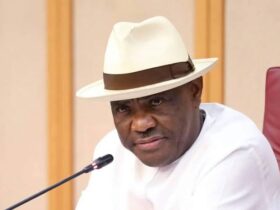
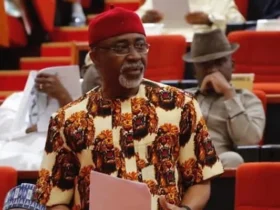

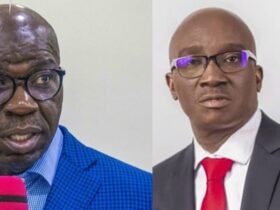
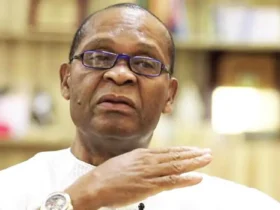
Leave a Reply